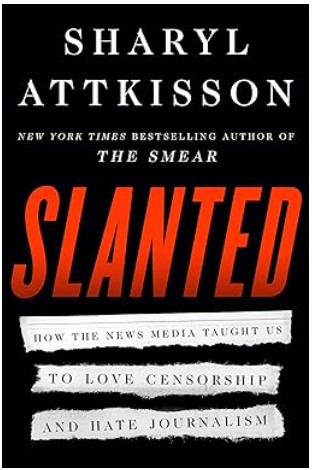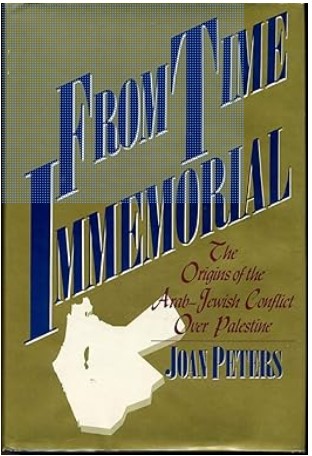In the spring of 2007, I went to Dallas Seminary and met with Dr. Dwight Pentecost. It had taken weeks of talking with my contact at the Dallas Seminary Foundation to arrange this. By this time in my life, I had started my investment research letter, The Investors Mind and had released my research paper, Riders on the Storm: Short Selling in Contrary Winds. Having studied the Bible over 3 decades by that time in my life, I was excited to have an opportunity to talk with a man known as one of the leading scholars in Biblical Eschatology.
Even though he was 92 when we met, our talk was like one with a young man, passionate to tell you of a wonderful trip he had just returned from.
Having traveled the world over, talking with people of many cultures and religions, he told me he had seen a pattern that appeared everywhere he went. There were 3.
- They want to have good health. They do not look for “perfect health”, but hope they would not be surprised by something fatal.
- They want to have a stable financial situation. They do not want to be rich and fear losing it, or poor, and fear day to day survival. They merely want some stability.
- The third one is peace. Peace is not something they could conceive of on a large scale but desire it for their own lives with their family and community.
As I write this post, I dare say a person would need to have turned all communication off with the real world to believe that we live in a world of peace. However, since that discussion in 2007, I have found these 3 concepts to be almost universal as well.
Currently, the world is watching 3 major hotspots: Ukraine and Russia, Israel and Islamic Terror groups, and China and Taiwan. Clearly, the majority of people in the world have no desire to enter a global war. However, I believe we can all see this possibility is high when considering the 3 hotspots above.
What do we know about the History of the Middle East?
If one were to consider the hottest religious hotspot on earth, it would be Jerusalem. This place has centuries and centuries of history for Islam, Christianity, and Judaism. Christianity and Islam (certainly a wide range in what is practiced) are the two largest religions in the world.
- If you did not listen to Tucker Carlson’s interview with Putin on X, I would strongly encourage you to do so. When considering the global media narrative that controls “the news”, this one is certainly outside their narrative. It is also contains interesting commentary on the history of Ukraine and its relationship to Russia over centuries.
- A great book from a highly seasoned journalist on this topic is Sharyl Attkisson’s, Slanted: How the News Media Taught Us to Love Censorships and Hate Journalism (2020)]. When I talk with individuals, it is not long before I can tell if their ideas have developed from “the narrative”, or if they understand that “the narrative” is akin to indoctrination on the “correct view”. Considering the size of historical events we are watching, understanding the difference has never been more important to how we interpret events.

Do I think there will be peace soon? No way.
Do I think there will be peace in the future for Jerusalem and the area around it? Yes.
Since we are dealing with a world where the global news narrative and censorship continues to get stronger, it is always encouraging to find individuals thinking outside this global narrative box.
If you made it this far, I would like to share with you more information and sources that are outside the global news narrative for your own evaluation of what we are watching in the “Israel-Hamas/Palestinian people” narrative.
- The Israeli/Palestinian Conflict Narrative Questioned.
The easiest way to evaluate this statement is to consider what happened BEFORE 1948. I am only going to focus on a few pieces of data.
The following are pulled from the book, From Time Immemorial: The Origins of the Arab-Jewish Conflict Over Palestine by journalist Joan Peters. It took Peters 7 years to put together this tome. I personally do not know of a better resource on the long history of the land leading up the 1970s. She even states that she changed her view of this conflict during her 2nd year of research because of her findings.
[2007/my copy was $12.89. Now collectible/over $240 on Amazon.]

We start 50 years ago when she was taken to a refugee camp outside of Beirut.
“ It was 1974, two and a half decades after the war against Israel’s statehood, with several Arab-Israeli wars since, and these appealing, victimized people were still refugees, with weapons as the remedy prescribed for their collective wound. Where were their civil rights? Why were the Arab refugees, unlike refugees on other continents, not yet rehabilitated but still in camps? [italics author’s, page 4]
“Because I’d assumed that Arab refugees from Israel were the ‘Middle East refugees’, I started to find that, also around 1948, whole Jewish populations from numerous Arab countries had been forced to flee as refugees to Israel and elsewhere in the world.” [italics author’s, page 4]
The change of her original hypothesis.
“…this book was nearly two years along and its outline still contained assumptions of conventional wisdom about the pivotal past, unwittingly supporting and reinforcing central misconceptions of the Arab-Israel conflict, even while I was attempting to uncover the truth.” [page 7]
Arab Leaders knew this narrative was wrong decades ago.
“Since 1948 Arab leaders have approached the Palestine problem in an irresponsible manner… They have used the Palestinian people for selfish political purposes. This is ridiculous and, I could say, even criminal” King Hussein of Jordan, 1960 (page 11)
2. Why didn’t the Jews stay in other parts of the Arab world?
After Islam started in the 7th century, things changed. This is only a small sample of the treatment of Jews in Arab nations in the 20th century.
Iraq – “When Iraq joined the Arab war against Israel’s independence, in May 1948, government terror increased; Jews, who had been restricted to some degree from travel, now were forbidden to leave the country, and many fortunes were extorted and confiscated….” “Zionism became a capital crime, and Jews were publicly hanged in the center of Baghdad…the Jews were stripped of million of dollars through economic discrimination.” [page 45]
“The Jews of Iraq, too, flew to Israel – between 1949 and 1952 alone, more than 123,000 Iraqi Jews escaped and were forced to flee to Israel and to leave their assets and communal holdings behind.” [page 43]
Egypt –
“In the days following the November (1947) vote to partition Palestine, Jews in Cairo and Alexandria were threatened with death, their houses were looted, and synagogues were attacked.” [page 48]
“With the outbreak of the 1948 war, Egyptian Jews were barred from leaving Egypt, whether for Israel or elsewhere. Then, early in August 1949, the ban was abruptly lifted, and much sequestered Jewish property was returned.
From August until November of 1949, more than 20,000 of Egypt’s 75,000 Jews fled, many to Israel.” [page 49]
“In 1964 President Gamal Abdel Nasser declared, in an interview, that Egypt still pledged allegiance to the old Nazi cause: ‘Our sympathy was with the Germans.’” [Page 49]
Syria –
“Jewish history in Syria began in biblical times. By A.D. 70, 10,000 Jews dwelt in Damascus, and a consistent Syrian Jewish presence was maintained for more than two millennium….’ [page 60]
“The French were assigned mandatory rights over Syria in 1920, and in 1925, the time of the Druse revolt against the French, the Jewish quarter of Damascus was attacked; many Jews were murdered, dozens were wounded, and homes and shops were looted and set afire. “[page 62]
“In 1942 the Axis radio in Damascus caused additional alarm through broadcast of the false report that Roosevelt and Churchill had promised Syria to the Jews as part of a post-war Jewish state. The Jewish Quarter was raided in 1944 and 1945, and the end of World War II intensified the persecution and restrictions against the Jews. Tens of thousands of Syrian Jews fled between the world wars and after. The Jews numbered roughly 35,000 in 1917; in 1943 about 30,000 remained…By early 1947 only 13,000 Jews remained.” [page 63-64]
_______________________________________________________________________________________________
At this point it should be obvious from these stories of extreme persecution, that the REFUGEES in this story should be the Jews. The same countries that forced them to flee into the tiny strip of land that became the nation of Israel again in 1948, are offering no aid or help right now to allow the Palestinian Arabs to even take temporary refuge in their own country while Israel fights Hamas and destroys their operations and tunnels still under Rafah. Even Hamas has shown no respect for the Palestinians they are supposed to “govern”.

What does that say to anyone thinking about the global narrative that continues today? This is one of the greatest misinformation narratives of history.
Can there be peace? Yes, but not from the current solutions proposed.
History of Gaza and an Arab Muslim Israeli Speaks Out
I strongly encourage you to listen to these two individuals. With all the painful and negative events surrounding this part of the world today, these two individuals – one Jew, one Muslim, both Israelis – will encourage you that there is a way to move toward peace outside of the two-state solution that neither Hamas, Hezbollah, Iran, or Israel want. I also believe from the writings of various Jews who wrote the Bible I have studied for almost 50 years, that there is a day coming when there will be world peace. The center of that world peace is Jerusalem and this land. I know, just not today.
Enjoy.
Dr. Erez Soref, a Jew who is President of One for Israel. Watch, A Brief History of Gaza: Ancient and Modern. I am sure almost anyone watching this will learn something new.
Sophia Khalifa, an Arab Muslim who grew up in Israel and is an Israeli citizen today. Watch, Sophia Khalifa: My Life in Israel as an Arab Muslim.
# For other sources outside “the narrative”, check out HonestReporting.com, MEMRI.org, and Times of Israel.com.
Next up, good books that have impacted and strengthened my thinking on different topics over the last few months. Their content contains information that is most certainly outside the global media narrative.
As always, comments are always welcomed. If you find this information of value, please share it with others.
